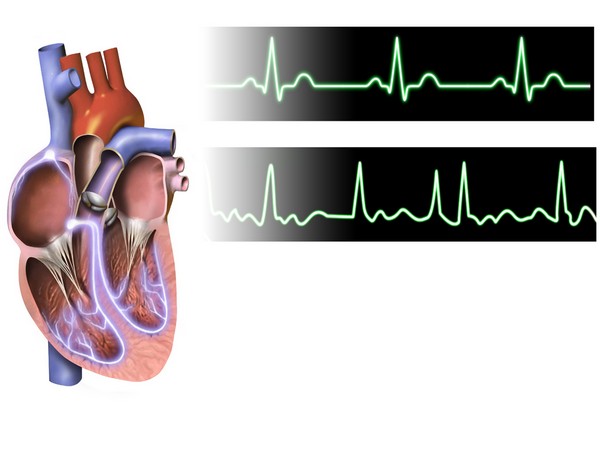Paris, France: Home-based and personalized schooling retains patients with atrial fibrillation from hospital, based on late breaking results in the HELP-AF study presented at ESC Congress 2019 with the World Congress of Cardiology.
Chief investigator Professor Prash Sanders at the University of Adelaide, Australia stated: “The initiative was developed to enable individuals to understand and seize charge of their atrial fibrillation, i.e. to boost self-management. In quitting hospital admissions its achievement has consequences for the delivery of maintenance in atrial fibrillation. As healthcare costs grow because of hospitalizations, such programs are crucial.”
The amount of individuals has increased. This is because people obtaining lifestyle related conditions like hypertension, obesity, sleep apnoea and diabetes which increase the possibility of atrial fibrillation and are becoming older. Atrial fibrillation is a cause of introducing compared to heart attacks or heart failure.
Prof Sanders explained: “Some hospital admissions for atrial fibrillation are probably preventable through greater education of these living with the illness. We thought that helping them understand their own illness involving patients in their own care, and providing tools to handle it may prevent hospitalisations.
This led us to perform the HELP-AF research, which looked at the effect of home education instruction on hospitalisation and high quality of life”
The study registered 627 patients with atrial fibrillation. Patients were randomised into the normal or programme care. Patients have been approached to take part within two weeks of the emergency department presentation.
Patients obtained two home visits then following enrolment and the six months. Physicians received a leaflet. Instruction concentrated around four messages and was sent in a manner:
Direction of prospective atrial fibrillation episodes;
significance of medications to deal with symptoms and stroke danger;
proper utilization of stroke prevention medications;
part of lifestyle modification. Messages were personalised to target regions where behavior change was required.
Patients were followed for 2 years for its primary endpoints of both all-cause unplanned hospitalisation and medical grade of life assessed from the 36-Item Short Form Health Survey (SF-36).
In 24 months, complete unplanned hospitalisations have been 233 from the HELP-AF group and 323 with usual care with the event rate ratio of 0.74 (95% confidence interval 0.62–0.89; p=0.001). The intervention decreased hospitalisations by 49 percent by atrial fibrillation hospitalisations by 31 percent, 26 percent, and other hospitalizations.
There was no gap in quality of life utilizing the SF-36 poll, and it will be a health survey that is standard. Utilizing a specific poll, the Atrial Fibrillation Impact on QualiTy-of-Life (AFEQT), there was slow improvement in quality of life measures with time in the two classes. This attained significance at 24 weeks in 2 subcategories of the”Symptoms” and”Treatment Concern” domain names, in favour of their intervention.
Prof Sanders said elements of this scheme
Education has been delivered at the comfort of their patient’s house using language they can understand and focusing on subjects relevant to them.
Patients received a booklet as a continuing reminder of the four messages.
The substance listed questions patients could talk with their doctor to help manage their illness.
The leaflet outlined the”REST program” for patients to follow through atrial fibrillation episodes to avoid going into hospital. This included developing a phone service for information and a crisis management program with their doctor .
Prof Sanders explained:”The analysis indicates that education delivered in a structured and individualised way inside the patient’s house has a dramatic impact not just on hospitalisations for atrial fibrillation but on all cardiovascular hospitalisations.”
This intervention’s plan makes it effortless to replicate in different countries and preferences, mentioned Prof Sanders. Nurses and upskilled in atrial fibrillation administration and pharmacists were educated in a structured strategy that was seeing. “It had been personalised education working with a structured shipping process,” he explained.

